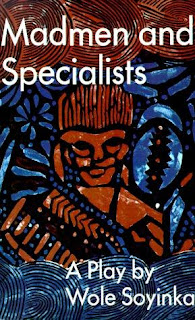168. The Famished Road by Ben Okri

Title: The Famished Road* Author: Ben Okri Genre: Fiction/Surrealist Publishers: Vintage Pages: 500 Year of First Publication: 1991 Country: Nigeria Ben Okri's The Famished Road entrenches the writer's style of mixing what others might refer to as surrealism with realism. Like the stories in his collected short stories Incidents at the Shrine , Okri capitalises on the African's abundant belief in the spiritual world, or supernatural, to tell his stories, presenting the reader with a cascade of fantastic images and challenging descriptions. To the African the spirit world is not far off from or diametrical to the physical world; the African believes in the fluidity between the two and believes that children come from the spirit world, just as people go to the spirit world when they die. In effect, the African believes that the world we live in now, the one we see and feel, which could be referred to as the physical world, is just a transit in that infinit...









